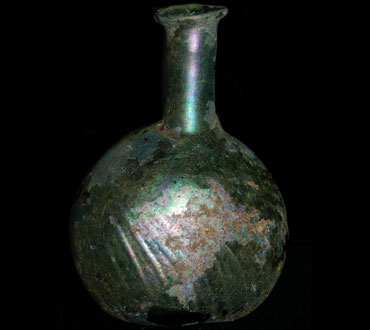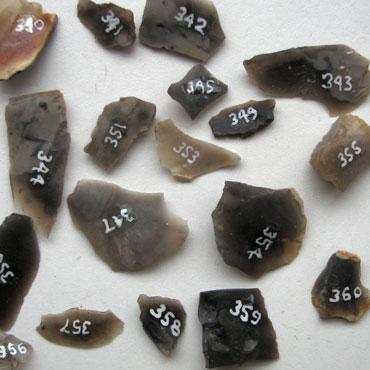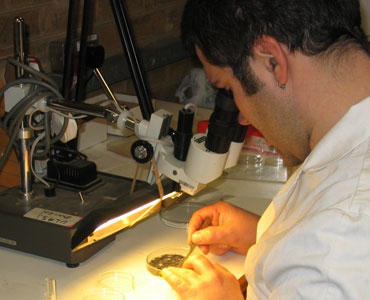University of Leicester Archaeological Services
Post-excavation services
Artefact analysis
 Our finds specialists can offer a comprehensive conservation and analysis service including:
Our finds specialists can offer a comprehensive conservation and analysis service including:
- Assessment and analysis of artefact assemblages
- Artefact cleaning and conservation
- X-radiography of finds
- On-site consultancy and conservation
- Investigative and remedial conservation
- Stabilisation of metal, glass and organic materials
- Identification of textile and wood
Ceramics
ULAS specialists can offer full identification, assessment and analysis reports on pottery and ceramic building materials from the following periods:
- Prehistoric
- Roman
- Medieval
- Post-medieval
 Flint and worked stone
Flint and worked stone
Our specialists undertake comprehensive analyses of material from the Early Palaeolithic onwards, from across the UK, including:
- Typo-technological analysis
- Spatial analysis
- Refitting
- On-site consultancy
- Querns and masonry
Animal bone
ULAS specialists are experienced in both urban and rural assemblages of prehistoric, Roman and medieval date. With access to an extensive reference collection and laboratory facilities, our team offers a full assessment, analysis and reporting service covering the following species:
- Mammals
- Reptiles
- Amphibians
- Birds
- Fish
Environmental archaeology
 Our team of specialists can offer a complete assessment and analysis report service including:
Our team of specialists can offer a complete assessment and analysis report service including:
- Processing of samples for plant and animal remains
- Assessment of processed samples
- Analysis of plant microfossils
- Analysis of oyster shells
- Identification of charcoal
- Starch analysis
Reporting, illustration and publication
The ULAS team has extensive experience of delivering post-excavation work to time and budget, including:
- Production of reports
- Archaeological graphics/CAD
- GIS/mapping
- Editing
- Publication, both through a dedicated monograph series and peer-reviewed national and regional journals.